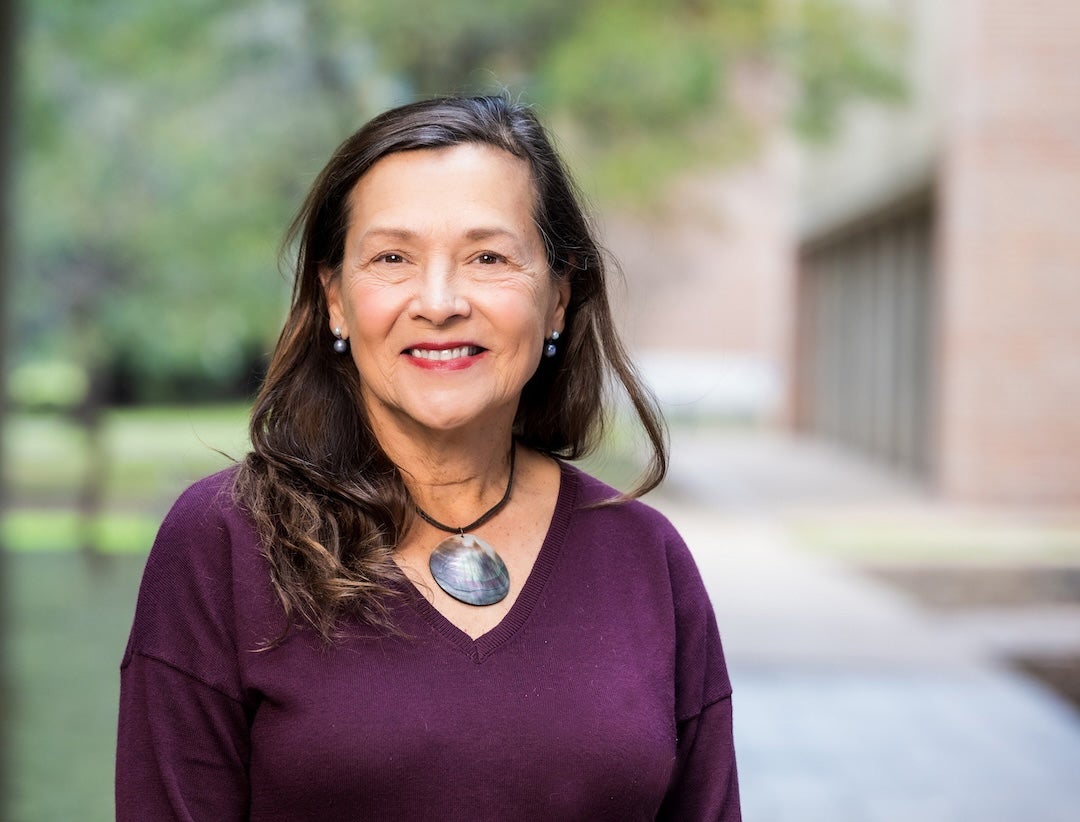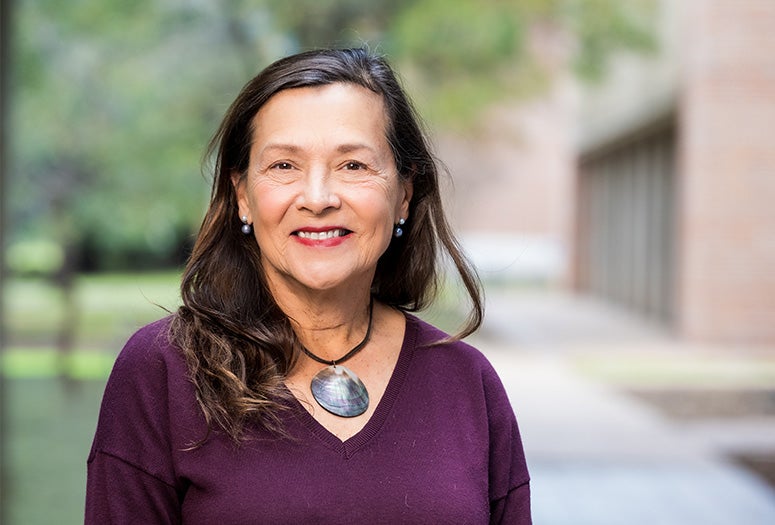
Rice University’s Naomi Halas is the recipient of the 2025 Benjamin Franklin Medal in Chemistry, awarded “for the creation and development of nanoshells — metal-coated nanoscale particles that can capture light energy — for use in many biomedical and chemical applications.”
Halas’ work has pioneered new insights into how light and matter interact at the smallest scales. When she joined Rice in 1989 to support the efforts of the late Richard Smalley in advancing the burgeoning field of nanoscale science and technology, her experience working on laser science in the research-intensive milieus of IBM Yorktown and AT&T Bell Laboratories gave her a unique perspective: Halas recognized that the nanoscale world was not something foreign — it was, fundamentally, chemistry.
“A lot of people were talking about nano like it was something completely new,” said Halas, who is University Professor at Rice, the institution’s highest academic rank. “But I realized it was really just chemistry viewed in a different way, and that really got me thinking about how I can combine the worlds of laser science and nanoscience.”
That shift in perspective led to the development of a new family of nanoparticles with tunable optical properties, triggering a series of influential discoveries and enabling applications in fields ranging from cancer therapy to water purification to light-driven chemistry and renewable energy.
“Naomi’s contributions to nanoscience have not only expanded the boundaries of our understanding but also transformed real-world applications in medicine, energy and beyond,” Rice President Reginald DesRoches said. “Her pioneering work on nanoshells exemplifies the spirit of innovation that defines Rice. We are immensely proud to see her recognized with the prestigious Benjamin Franklin Medal in Chemistry, joining a distinguished lineage of scientists whose discoveries have shaped the future.”
The new nanoscale structures came to be known as “nanoshells” because they consist of a metal coating over a core of a different material. By manipulating the size and shape of the nanoshells, Halas showed that it was possible to control how they interact with light. This insight became critical for advancements in plasmonics — the study of how light interacts with free electrons in metals — and opened the door to a whole new realm of optical engineering, enabling control over a host of exotic phenomena such as Fano resonances and electromagnetically induced transparency.
“These are things that are very esoteric; it is really physics for physicists,” Halas said. “But we were able to show that you can actually design systems that exhibit properties you do not readily come by in the natural world, and that’s very exciting and a very interesting part of the research ⎯ you can make physics happen as opposed to looking for physics happening in a natural system.”
Clinical trials of specially engineered gold nanoshells showed remarkable results when used for prostate cancer photothermal therapy by Nanospectra Biosciences, a company co-founded by Naomi Halas and Jennifer West (currently the dean of engineering at the University of Virginia), with the technology currently under review by the U.S. Food and Drug Administration.
Beyond medicine, Halas has pioneered the use of plasmonic catalysts, a technology that could dramatically reduce the energy required for chemical reactions. Traditional industrial chemistry relies on high temperatures and pressures, but Halas, along with Rice’s Peter Nordlander and her team of students, demonstrated that light alone can drive the same reactions. This idea led to the founding of Syzygy Plasmonics, a company that is now deploying light-driven, all-electric chemical reactors for inexpensive and sustainable hydrogen fuel production.
“Scientific breakthroughs transform things: They heal us — they help us,” said Halas, the first Rice faculty member to be elected to both the National Academy of Sciences and the National Academy of Engineering for research carried out while at the university. “It is a great honor to receive the Franklin Medal in Chemistry, and I would like to thank everyone who has supported our work over the years. It’s never about just one person ⎯ it’s about discoveries propagating and inspiring others to push forward.”
Halas has also been elected to the National Academy of Inventors, the American Academy of Arts and Sciences and the Royal Danish Academy of Science and Letters. She is a recipient of Optica’s C.E.K. Mees Medal, the 2024 Mildred Dresselhaus Prize in Nanoscience and Nanomaterials from the American Physical Society and numerous other honors and awards. Halas has received 30 patents for applications of nanophotonics in medicine, chemistry, physics and engineering.
The awards program of The Franklin Institute of Philadelphia ⎯ established in 1824 to honor the legacy of Benjamin Franklin ⎯ “is the oldest and most comprehensive in the United States,” according to the institute website.
Halas joins a list of illustrious scientists, engineers and innovators whose contributions have shaped “the course of human discovery and advancement through the past two centuries,” including past laureates such as Nikola Tesla, Thomas Edison, Pierre and Marie Curie, Max Planck, Albert Einstein, Edwin Hubble, Stephen Hawking, Jane Goodall, Bill Gates, Jim Allison and Frances Arnold. Many scientists recognized with this award have gone on to receive the Nobel Prize in their field.
Other Rice recipients of the Franklin Medal are Smalley (1996, chemistry), who went on to win the Nobel Prize for the discovery of the buckminsterfullerene, and Peter Vail (2005, Earth sciences). Rice chemist K.C. Nicolau was awarded the Benjamin Franklin Medal (2011, chemistry) while at the University of California San Diego.
As a recipient of the Benjamin Franklin Medal in Chemistry, Halas will receive a $10,000 honorarium and will be presented with a 14-karat gold medal during an award ceremony May 1 at the institute headquarters in Philadelphia.
- Access associated media files:
-
https://rice.box.com/s/pptmk869pgzskgbhvty7c2h4wh4lp83u
(Photos by Jeff Fitlow/Rice University)

